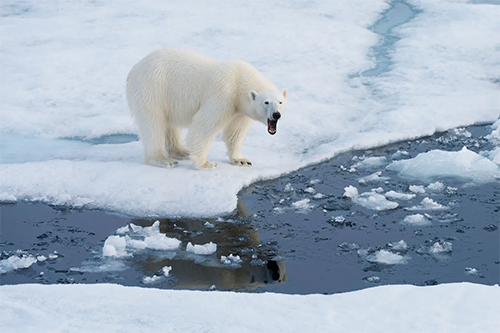Research Seminar
Using Large Ensembles to understand the drivers of Arctic climate change
Monday, April 24, 2023
12:30 PM - 1:30 PM
1022 HN

Presented by
Mark England
Department of Mathematics & Statistics
University of Exeter, UK
Over the last forty years, the Arctic has warmed over four times faster than the rest of the globe and Arctic sea ice cover has dramatically declined, with a fifty percent reduction in summer sea ice extent over this period. It is one of the most stark indicators of human induced climate change. In contrast, in the mid-twentieth century the Arctic was cooling and sea ice cover was expanding even as the globe was slowly warming. What are the drivers of these observed trends: how much can be attributed to human activity and how much is due to naturally occurring internal climate variability. It is important to get a robust answer to this question because it shapes the story we tell ourselves, the public and policymakers about climate change and can inform projections of Arctic climate change over the coming decades.
I will explain how large ensembles of climate model simulations can be used to assess the role of naturally occurring climate variability and estimate the contribution of human activity to these observed trends. Large ensembles, which are at the forefront of climate modelling research, involve simulating realizations of the climate a large number of times using state of the art climate models. Gaining an understanding from these vast data sets, which feature tens of terabytes of output, requires innovative statistical techniques to isolate the feature of interest. Additional simulations, called single forcing ensembles, can be used to quantify which anthropogenic emissions, such as different greenhouse gases and industrial aerosols, are responsible for these different components of human-induced climate change. In this talk I will showcase a range of work based on large ensembles and single forcing ensembles which explore the underlying causes of the mid-twentieth century Arctic cooling, the rapid Arctic warming after the 1960s and recent regional sea ice trends.
Download flyer here.
